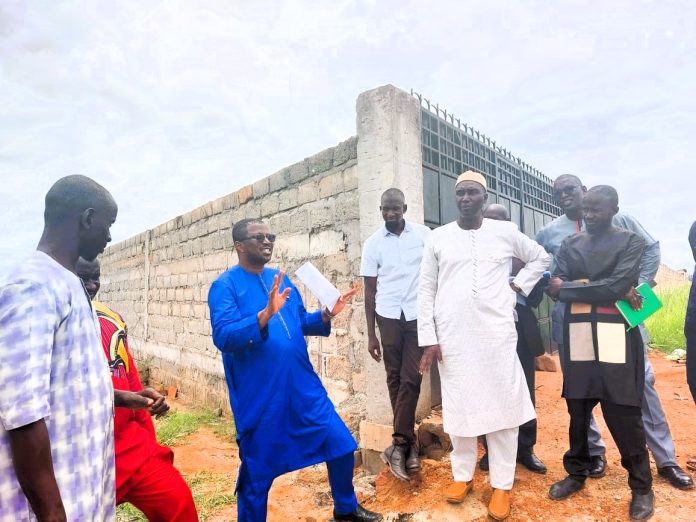By Fatou Dahaba
The Minister of Trade, Industry, Regional Integration, and Employment, Hon. Baboucarr Ousmaila Joof, and the Minister overseeing the Ministry of Lands, Regional Government, and Religious Affairs, Hon. Baboucarr Bouy, recently visited Bound Road and Kamaloo in Banjul to inspect the designated industrial areas.
The authorities were out to check the lands allocated for industrial purposes and whether they were being used for the purposes for which they had been given. They have also been assessing areas that are shrouded with conflicts and disputes.
Speaking after the conducted tour of the sites, Minister Joof affirmed that their outing was to assess what has been allocated, to whom, and what has been done to the available land.
He said they have also assessed the possibilities of involving the Ministry of Trade in future land allocations “to ensure that there is that rationalization of location proximity and zoning of industries to avoid conflicts.”
He assured the team would visit all the designated industrial areas as his Ministry is responsible for industries. Furthermore, he added that industries are a whole ballgame that requires organizing in a certain way to help manufacturing and production.
“The current minister overseeing the Ministry of Lands is listening to our complaints, and that is why we are here together to see what is happening so that future corrections will factor the industrial lenses in the allocation of lands to avoid conflicts,” he said.
For his part, Minister Bouy acknowledged that land across the country is associated with so many problems. As a start, he revealed that they will look at the inventory of the lands allocated to see whether their assigned purpose is being achieved.
Permanent Secretary Sankareh-Farage described their visit as a fact-finding mission against some of the planning instruments they had to see if they were in compliance.
She, however, pointed out that they are starting with the industrial zones, not only the industrial areas fraught with issues and conflicts.
She, therefore, assured that they would eventually look at other allocated areas to address some challenges of encroachment and non-compliance of land use. Furthermore, she observed that one of the major issues they face is incompatible land use within a designated area.
As a ministry, the PS noted, they are taking this activity holistically, using it to remedy some of their institution’s challenges.
Madam Sankareh-Farage disclosed that the Ministry is also developing a land policy, which she believes would be a comprehensive document addressing some of these challenges that are not even factored in by the law.
She indicated this will give them a unique opportunity to review their legislation and align them with international standards. “More importantly, it is going to open the door for digitization to address all of these immediate challenges,” she stated.






